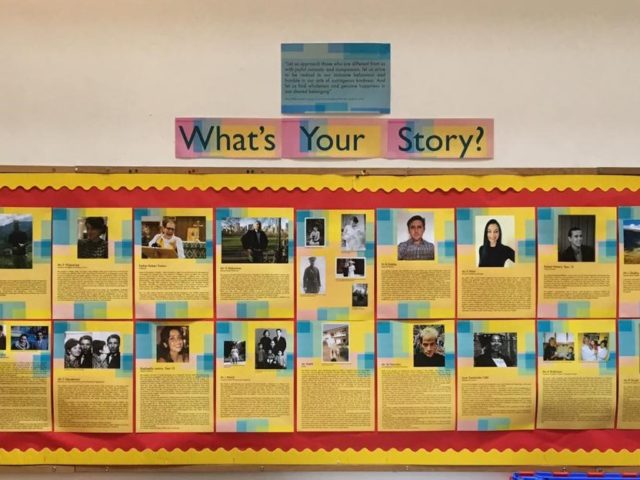A Radio 4 piece on the Chief Rabbi’s persuasive drive to respect the Sabbath, featuring a seven-year-old who explained that her iPad was ‘one of her friends’, stopped me in my shaving-tracks recently.
Ironically, of course, I am staring at a screen as I gather these very thoughts – this can’t really be a bleat about technology, therefore. Yet a recent survey revealed that under 21-year-olds wished social media had never been invented; musings on the impact of technology on our privacy and quality of life are getting a serious airing (see Jonathan Safran Foer in The Guardian); clumsy retro brick-phones are on everyone’s Christmas wish-list. Perhaps the non-digital mouse has roared?
It’s been great, as parent and teacher, to see how teenage children forge deeper friendships as they grow older. The outcomes are much the same as they used to be: close friends who don’t need to be similar to be valued; young, differently-voiced individuals who complement each other’s foibles but nonetheless have something tangible (so often humour!) in common. Now, though, the means of securing friendship is radically altered.
Conversations carry on over the ether in an entertaining volley of messages and chirpy comments, inching teenagers towards closer understanding and intimacy through oddly distant communication. The friendships which emerge can’t be as strong. Some would argue that above all else it’s empathy, that ability which is learnt and honed face-to-face, which suffers. Others see the fabric of family connections unravelling. While my mind is open to either being true, I’m more interested in what we can do to keep the digital djinn from growing.
Nevertheless, at home, I’ve retreated from a blanket ban on phones during family TV to what I would call more nuanced (others might call pernickety) etiquette. It’s fine to be on social media if you’re watching a live programme where the fun is in the audience reaction – The Great British Bake-off loses little, and may even gain something, if your phone is pinging with your friends’ witticisms. But where the on-screen action requires that ‘willing suspension of disbelief’ – we’re watching a film together and we’re trying to believe we’re there!
I still spend fortunes buying books (which do get read), and promote Scrabble, Monopoly and card games – the tangible, 20th century versions. Of course, it’s fun to play online, but how much more fun, how much more of an empathetic workout, to pick your way through sibling rivalry and chafing frustration to long-lasting sibling affection by means of face-to-face, competitive play?
I have also wondered whether we need to get those young teenagers together more. Parents are rightly cautious of what their young want to do of an evening away from home. The alternative, though – being connected in all but space and place – means they’re not really at home at all. Their communication is unmoderated by reading of eye contact and body language, uninhibited and unconstrained without the safety net of instantaneous reaction – blushes, tears, whatever. On-line restraint is rare. But thrown together, doing stuff that’s fun creates a sturdy climbing frame for friendship that models lasting relationships.
If you’re reading this and thinking digital toxins are the problem of the young, forgive me: we older generations are just as much at risk. Back to my ironies, I took to blogging because typed letters seemed never to get through to busy families. An online, 24/7 blog-posting fits in well with our digital consumption of news. Of course, that same oh-so-convenient technology means there’s no such thing as a private letter from school to parents – any communication is shared with the world. It’s not a problem in itself, but it changes the nature of what’s said when you’re running it through your PR filter.
I’m sure that little girl didn’t mean her iPad was her friend. Her innocent words should still push those of us who predate when phones got smart to make sure our children learn – and we remember – the recipes for working out who really are our friends.
Adam Pettitt, 1 November 2017

